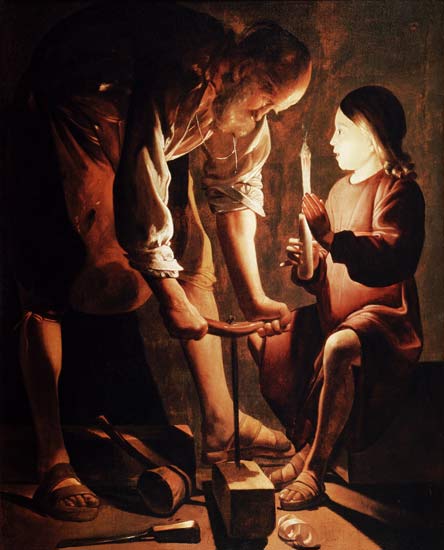
HT to my friend Leslie for the reminder.
Mother Teresa of Calcutta, the tiny woman recognized throughout the world for her work among the poorest of the poor, was beatified October 19, 2003. Among those present were hundreds of Missionaries of Charity, the Order she founded in 1950 as a diocesan religious community. Today the congregation also includes contemplative sisters and brothers and an order of priests.
Speaking in a strained, weary voice at the beatification Mass, Pope John Paul II declared her blessed, prompting waves of applause before the 300,000 pilgrims in St. Peter's Square. In his homily, read by an aide for the aging pope, the Holy Father called Mother Teresa “one of the most relevant personalities of our age” and “an icon of the Good Samaritan.” Her life, he said, was “a bold proclamation of the gospel.”
Mother Teresa's beatification, just over six years after her death, was part of an expedited process put into effect by Pope John Paul II. Like so many others around the world, he found her love for the Eucharist, for prayer and for the poor a model for all to emulate.
Born to Albanian parents in what is now Skopje, Macedonia (then part of the Ottoman Empire), Gonxha (Agnes) Bojaxhiu was the youngest of the three children who survived. For a time, the family lived comfortably, and her father's construction business thrived. But life changed overnight following his unexpected death.
During her years in public school Agnes participated in a Catholic sodality and showed a strong interest in the foreign missions. At age 18 she entered the Loreto Sisters of Dublin. It was 1928 when she said goodbye to her mother for the final time and made her way to a new land and a new life. The following year she was sent to the Loreto novitiate in Darjeeling, India. There she chose the name Teresa and prepared for a life of service. She was assigned to a high school for girls in Calcutta, where she taught history and geography to the daughters of the wealthy. But she could not escape the realities around her—the poverty, the suffering, the overwhelming numbers of destitute people.
In 1946, while riding a train to Darjeeling to make a retreat, Sister Teresa heard what she later explained as “a call within a call. The message was clear. I was to leave the convent and help the poor while living among them.” She also heard a call to give up her life with the Sisters of Loreto and, instead, to “follow Christ into the slums to serve him among the poorest of the poor.”
After receiving permission to leave Loreto, establish a new religious community and undertake her new work, she took a nursing course for several months. She returned to Calcutta, where she lived in the slums and opened a school for poor children. Dressed in a white sari and sandals (the ordinary dress of an Indian woman) she soon began getting to know her neighbors—especially the poor and sick—and getting to know their needs through visits.
The work was exhausting, but she was not alone for long. Volunteers who came to join her in the work, some of them former students, became the core of the Missionaries of Charity. Other helped by donating food, clothing, supplies, the use of buildings. In 1952 the city of Calcutta gave Mother Teresa a former hostel, which became a home for the dying and the destitute. As the Order expanded, services were also offered to orphans, abandoned children, alcoholics, the aging and street people.
For the next four decades Mother Teresa worked tirelessly on behalf of the poor. Her love knew no bounds. Nor did her energy, as she crisscrossed the globe pleading for support and inviting others to see the face of Jesus in the poorest of the poor. In 1979 she was awarded the Nobel Peace Prize. On September 5, 1997, God called her home.
.
There are so many to choose from, but here are some of my favorite quotes from Mother Teresa:
.
Even the rich are hungry for love, for being cared for, for being wanted, for having someone to call their own.
Being unwanted, unloved, uncared for, forgotten by everybody, I think that is a much greater hunger, a much greater poverty than the person who has nothing to eat.
Love begins at home, and it is not how much we do... but how much love we put in that action.
Jesus said love one another. He didn't say love the whole world.
In this life we cannot do great things. We can only do small things with great love.
If you can't feed a hundred people, then feed just one.
It is a poverty to decide that a child must die so that you may live as you wish.
I know God will not give me anything I can't handle. I just wish that He didn't trust me so much.
 Here are the readings for this coming Sunday's Scripture readings from the U.S. Catholic bishops website.
Here are the readings for this coming Sunday's Scripture readings from the U.S. Catholic bishops website.
















